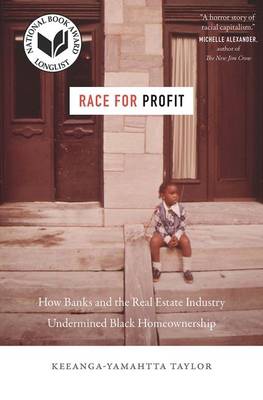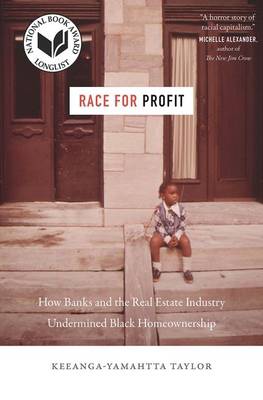
- Retrait gratuit dans votre magasin Club
- 7.000.000 titres dans notre catalogue
- Payer en toute sécurité
- Toujours un magasin près de chez vous
- Retrait gratuit dans votre magasin Club
- 7.000.0000 titres dans notre catalogue
- Payer en toute sécurité
- Toujours un magasin près de chez vous
Race for Profit
How Banks and the Real Estate Industry Undermined Black Homeownership
Keeanga-Yamahtta Taylor
37,95 €
+ 75 points
Description
Offers a damning chronicle of the twilight of redlining and the introduction of conventional real estate practices into the Black urban market, uncovering a transition from racist exclusion to predatory inclusion.
Spécifications
Parties prenantes
- Auteur(s) :
- Editeur:
Contenu
- Nombre de pages :
- 368
- Collection :
Caractéristiques
- EAN:
- 9781469653662
- Date de parution :
- 30-10-19
- Format:
- Livre relié
- Dimensions :
- 244 mm x 167 mm
- Poids :
- 644 g

Les avis
Nous publions uniquement les avis qui respectent les conditions requises. Consultez nos conditions pour les avis.






